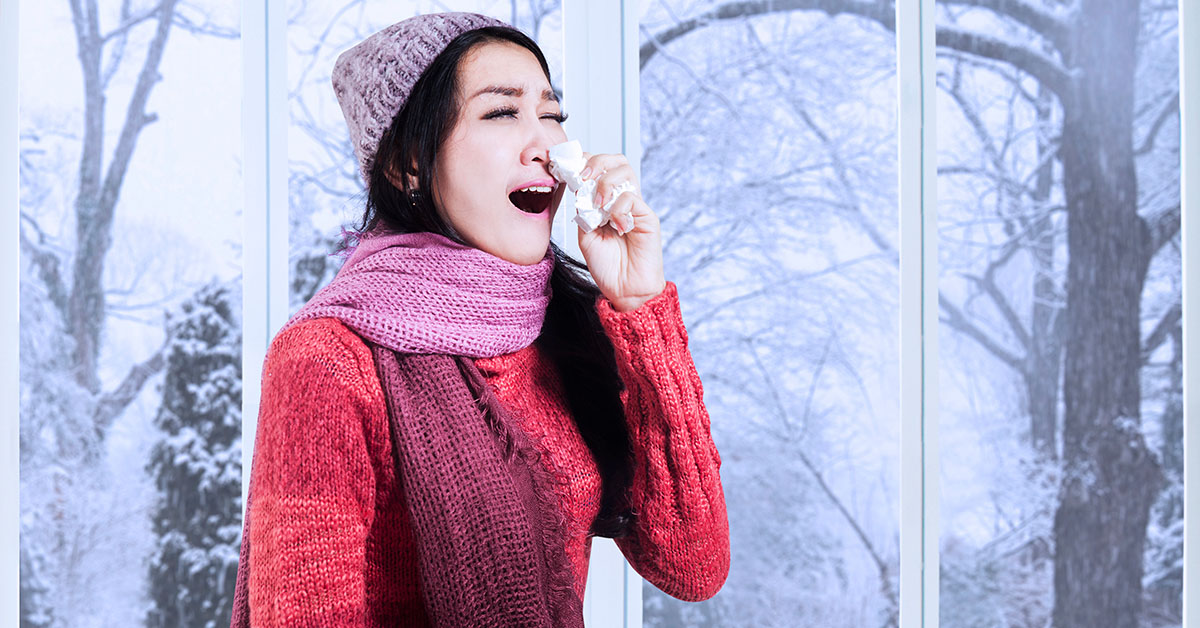
What are Winter Allergies?
Due to the lack of pollen and less time spent outdoors, winter allergies are less common than summer or spring allergies. However, winter allergies still exist. Here's why: Our immune system naturally reacts to foreign material that comes in contact with our body and still has the potential to overreact to a harmful winter allergen like mold or dust mites.
Causes of Winter Allergies
While outdoor pollen generally isn't an issue in the winter, other allergens are the primary causes of allergies that arise during winter. These common allergies primarily include the following:
- Mold
- Dust mites
- Pet dander
Mold is a fungus that thrives in dark and damp places like basements and bathrooms. It's important to ensure that your basement is free from water intrusion to help prevent mold growth.
Dust mites are microscopic bugs that are all around us. They like to live and breed in mattresses and bedding. Help keep dust mites at bay by regularly washing your bedding and linens.
Pet dander refers to the tiny flecks of skin from dogs, cats, and other animals with fur or feathers. Keep the effects of pet dander to a minimal by bathing your pets regularly and keeping them away from your furniture.
Symptoms and Diagnosis of Winter Allergies
Milder symptoms of winter allergies can include the following:
- Coughing or sneezing
- Watery or itchy eyes
- Stuffy or runny nose
- Itchy ears or mouth
- Dark circles under the eyes
If you experience your allergy symptoms for more than one week, visit your ENT specialist. Diagnosis will usually consist of an analysis of your allergies by asking about your symptoms, possible triggers, and allergy history. An allergy specialist may also perform a skin test consisting of various allergens being exposed to a small spot on your arm and observing your body's reaction.
Treatments for Winter Allergies
Treatment for the most common winter allergies generally include at least one of the following:
- Decongestants: Relieves congestion and swelling and clearing excess mucus.
- Antihistamines: Reduces sneezing, stuffiness, and/or itching.
- Immunotherapy: Exposes the body to larger doses of an allergen gradually in an attempt to lessen your body's negative reaction to that allergen.
When you are affected by winter allergies, you should focus on preventing the allergens from causing harm in the first place. One of the best ways to do so is by improving the indoor air quality in your home. Some useful tips for improving indoor air quality include:
- Using air purifiers to circulate and filter the air in your home.
- Regularly check on and change your furnace filter when it gets dirty.
- Maintain the relative humidity in your home to be around 50% through the use of dehumidifiers (usually needed in the summer) or humidifiers (usually needed in the winter).
- Wash bedding, linen, and towels frequently to prevent the accumulation of allergens.
- Check around your home more often for signs of mold or fungus and address the cause as needed.




